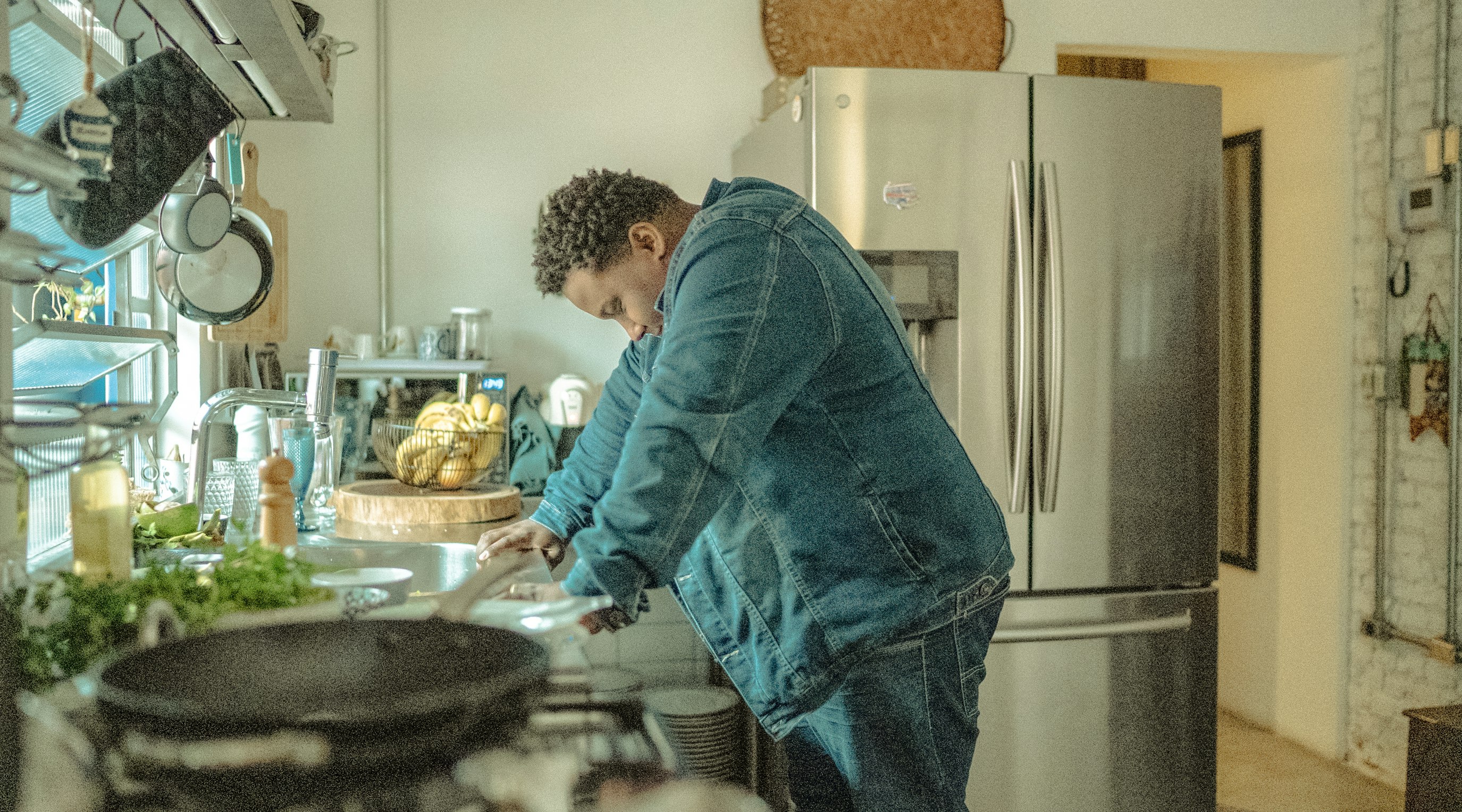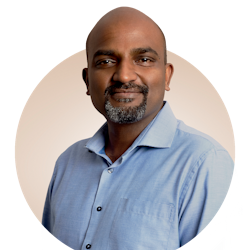Is CBD a viable complementary therapy option for PTSD?
7 min read
Sam North
One of the most extreme anxiety disorders is post-traumatic stress disorder (PTSD). This condition is extremely complicated and can be debilitating for those affected. Fortunately, there is a substantial and ever-growing body of evidence to suggest that medical cannabis, and specifically CBD, may be an effective complementary therapy option that could help in alleviating the symptoms of PTSD.
Contents
Since the legalisation of cannabidiol (CBD) administration in 2018, a plethora of CBD-infused products has come to market, from gummies and baked treats to disposable vape pens and tea bags. In the space of a few years, the CBD market has exploded in popularity and ubiquity, with experts projecting that it will be a billion-pound industry by 2025.
However, this rise in CBD merchandising has also led to an explosion in marketing, with retailers and marketers making some very bold claims about CBD’s ability to combat all manner of physical and psychological maladies from inflammatory autoimmune conditions like arthritis and Crohn’s disease to depression and anxiety.
How can CBD help with PTSD?
CBD is one of 113 cannabinoids found within the medical cannabis plant, with more cannabis-derived cannabinoids expected to still be isolated in the near future. These natural compounds work by interacting directly with the body’s endocannabinoid system – a massive network of signals and receptors that is the largest of its kind in not only humans but all mammalian bodies. CBD interacts with cannabinoid receptors in the brain and throughout the central and peripheral nervous system in ways that studies have shown to be beneficial to those experiencing symptoms of PTSD.
Although the study of CBD and its effects is a relatively recent field, there is already evidence to suggest that CBD can potentially aid symptoms of PTSD by:
- Helping to alleviate anxiety
- Reducing the frequency and severity of intrusive thoughts
- Aiding restfulness and sleep
CBD may help to alleviate the symptoms of PTSD while aiding recovery from the inciting trauma through other therapeutic means such as counselling or trauma-focused cognitive behavioural therapy.
With that said, CBD should never be seen as some kind of 'magic cure-all' for PTSD, or any other health concern. Be very wary of any retailer or marketer who makes bold claims about the efficacy of CBD for PTSD. What the currently available research is showing is that, when combined with traditional forms of therapy, and taken in the right doses, CBD may help those with PTSD manage their symptoms.
How to take CBD for PTSD: What is the best delivery method?
There is currently a bevvy of CBD products on the market, many of which are edible. CBD is extremely easy to incorporate into all sorts of recipes, which is why CBD chocolates, baked goods, and gummies are increasingly commonplace in specialist shops.
However, when taking CBD for PTSD, it’s important to remember that the delivery method can also affect the bioavailability of the CBD consumed. Digesting CBD reduces its availability to anywhere between 6% and 19%.
Taking sublingual drops, on the other hand, can increase bioavailability to as much as 35%. This is because the area under the tongue is full of capillaries, making it easier for the CBD to reach the bloodstream quickly. Inhaling CBD also improves bioavailability when compared to digestion, at around 31%. The safest form of CBD inhalation is through a vaporisation device.
What is the best dosage for symptom reduction?
CBD is generally well tolerated by the human body. Even in high doses, it is not toxic and side effects are relatively mild. However, it may compete for metabolism with some prescription medicines including opioids, blood thinners, epilepsy medicine, and antidepressants. You should always consult with your doctor before starting a course of CBD therapy.
A 2015 review of studies identified a dosage of 300 - 600 mg as being effective in reducing anxiety and aiding restfulness. However, CBD dosage is a very personal matter and your perfect dosage may fall outside this range.
CBD dosage for beginners
Before we dive into any specific dosage instructions, we have to impress fully that this is just a very rough guide. As mentioned above, finding the correct CBD dose is something that is highly personal, and is very rarely the same for two individuals.
By seeking guidance and advice from a specialist who has experience prescribing medical cannabis for PTSD, you will ensure that you receive the most appropriate advice for your own personal circumstances.
If you live in an area where it is simply not viable to access a doctor who has experience in prescribing medicinal cannabis, or if you are more comfortable with the idea of an online consultation process, then feel free to reach out to Releaf at any time. We provide online consultations with experienced medical cannabis professionals, who are on hand to answer any questions you may have.
With that said, let's look at the broad guidelines currently set out for CBD dosage.
When starting out with the administration of CBD, it’s important to establish a baseline for daily dosage.
It's also essential to note that CBD intake should be started at a low dose, both to gauge your body’s reaction to it and allow time for acclimatisation. As your body starts getting used to the cannabinoids, you may find that you need more of the compound for symptom relief.
Try aiming for 1 mg for every 1 kg of body weight to start out. Keep a diary of your experiences, making a note of any cessation of PTSD symptoms such as panic attacks, intrusive thoughts, or chest pains and any reduction in severity. If symptoms persist, try increasing the dosage by 2 – 3 mg per dose on a weekly or daily basis.
How much is too much?
It is generally accepted that the human body can tolerate around 1,500 mg of CBD per day without any unpleasant side effects. This is, realistically, more than most of us would find practical or affordable to consume on a daily basis. However, it’s important to keep an eye out for certain side effects that may indicate that your consumption of CBD is higher than your personal tolerance.
These may include:
- Dry mouth
- Drowsiness and lethargy
- Low blood pressure
- Reduced appetite
- Diarrhoea
If you experience any of these symptoms, this is a sign that you should reduce your dosage, and again reach out to your prescribing doctor for advice.
There is no one-size-fits-all approach to taking CBD, as everyone’s body is different and will respond in its own way. But by starting at a low dosage and gradually increasing it while keeping an eye out for any side effects, you should be able to find the perfect dosage regime for your individual needs.
CBD for the reduction of PTSD symptoms
So, there you have it.
While CBD should never be seen as a cure for PTSD, the constantly growing body of medical research into its efficacy as a complementary therapy option is showing encouraging signs that this versatile cannabinoid could be a powerful aid in the relief of PTSD symptoms.
You should always talk to your doctor before starting any course of medical treatment, whether it’s for the purpose of symptom relief or if you are simply looking to improve overall wellness. And if you can’t access specialist advice in your area, feel free to reach out to Releaf at any time.
Releaf understands the importance of medical cannabis in treating various medical conditions. With our tailored monthly packages, specialist consultations for medical cannabis, and a unique medical cannabis card for protection, you can access the treatment you need without worrying about the stigma.
Share article
Did you like this article?
It is important to seek medical advice before starting any new treatments. The patient advisors at Releaf are available to provide expert advice and support. Alternatively, click here to book a consultation with one of our specialist doctors.
Elevate your wellness with medical cannabis
Get comprehensive care, convenience, and confidence with an all-in-one treatment plan.
Am I eligible?Authors
Sam North, a seasoned writer with over five years' experience and expertise in medicinal cannabis, brings clarity to complex concepts, focusing on education and informed use.
Editorial Policy
All of our articles are written by medical cannabis experts, guided by strict sourcing guidelines, and reference peer-reviewed studies and credible academic research. Our expert clinical team and compliance specialists provide valuable insights to ensure accuracy when required. Learn more in our editorial policy.
Need more help?











